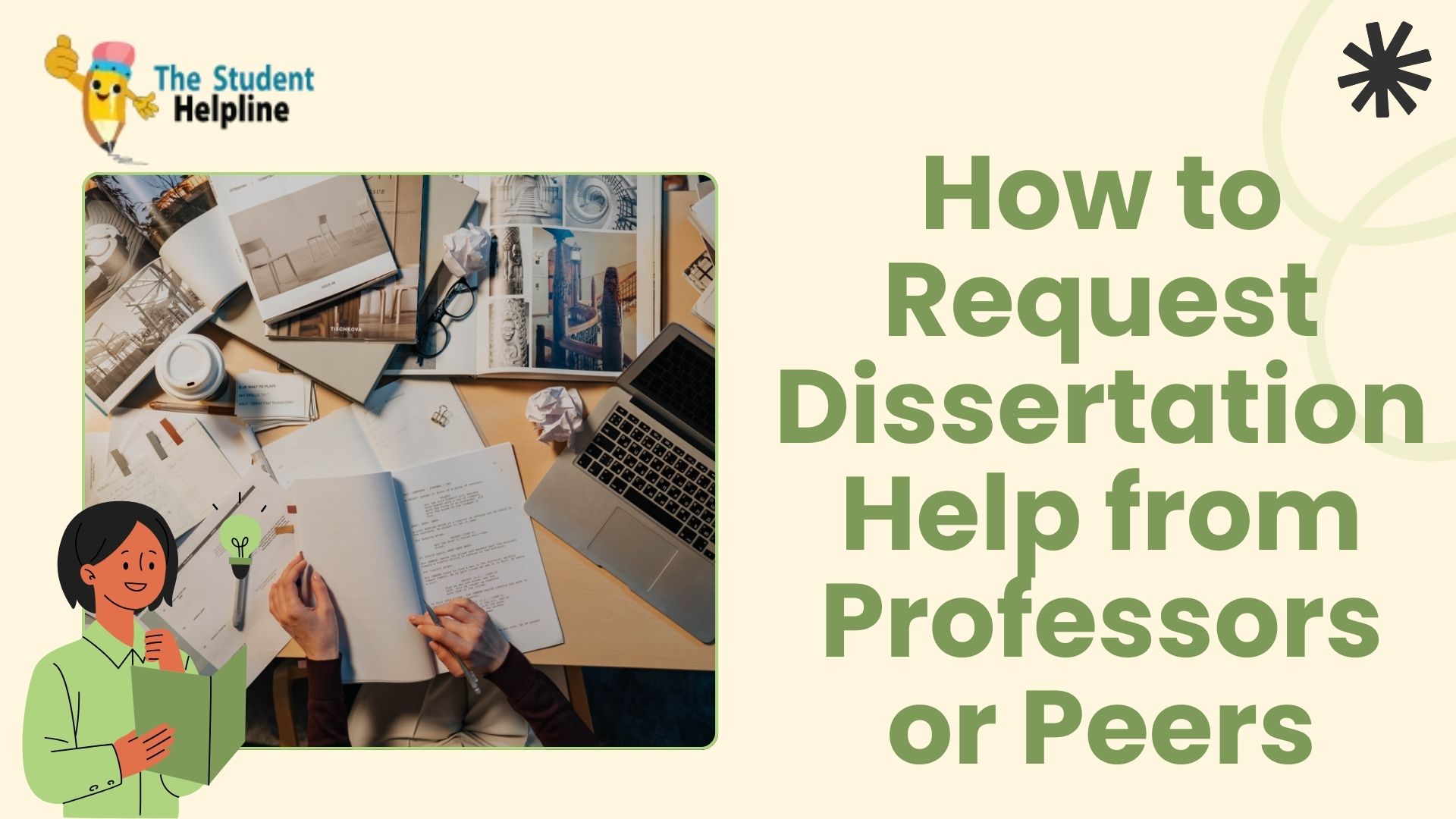
Embarking on the dissertation journey is one of the most significant milestones in any academic career. It’s a rigorous process that tests not only a student’s knowledge and research capabilities but also their time management, critical thinking, and writing skills. Often, students may find themselves overwhelmed and unsure of how to proceed. At this point, seeking dissertation help from professors or peers becomes not just useful—but essential. Knowing how to ask for assistance the right way can make the entire experience more manageable and even rewarding.
Understand the Importance of Seeking Help
Before reaching out, it’s important to recognize that asking for help is not a sign of weakness. On the contrary, it shows a willingness to learn and grow. Many students believe they need to do everything independently to prove their competence. However, the dissertation process is meant to be supported—supervisors are there for a reason, and peers can offer insight and camaraderie. Whether it’s through informal discussions or professional dissertation writing service, getting support is a natural and often necessary part of academic success.
Identify the Kind of Help You Need
When you’re ready to ask for help, the first step is to determine exactly what you’re struggling with. Are you having trouble narrowing down your topic? Is your methodology unclear? Do you need guidance on structure, referencing, or simply getting started? Or perhaps you need someone to review and provide feedback on your draft?
Once you identify your needs, you can more effectively approach the right person for help—be it your professor, a fellow student, or a professional offering assignment help.
How to Approach Professors for Dissertation Help
Professors are your primary academic resource, especially your dissertation supervisor. However, to make the most of their guidance, it’s essential to approach them the right way.
1. Be Prepared
Before meeting your professor, come prepared with specific questions or problems. Don’t just say, “I need help with my dissertation.” Instead, specify: “I’m unsure about how to justify my choice of methodology,” or “I would like your feedback on my literature review section.”
2. Respect Their Time
Professors are often juggling multiple responsibilities. Schedule meetings in advance, be punctual, and stay on topic. Sending a concise email with your questions beforehand can also help them prepare and offer more targeted assistance.
3. Show Initiative
Demonstrate that you’ve done your homework. Mention the steps you’ve taken so far and highlight areas where you’re genuinely stuck. This shows you’re not simply asking them to “do my dissertation,” but rather seeking meaningful guidance.
4. Follow Up
After receiving feedback or advice, apply it diligently and update your professor on your progress. This not only shows gratitude but also helps build a productive mentor-mentee relationship.
How to Ask Peers for Support
While professors offer expert guidance, your peers can provide relatable support. They understand your challenges because they’re going through—or have gone through—the same process.
1. Create a Study Group
Forming a dissertation study group can be incredibly helpful. This allows for the exchange of ideas, peer reviews, and mutual motivation. Group members can share resources, brainstorm research questions, and provide critical feedback on each other’s work.
2. Be Respectful of Boundaries
Everyone is busy with their own dissertation. When asking for help, be specific and considerate. Avoid overwhelming peers with large sections of your work unless they’ve agreed to review it. You can ask for focused feedback on particular sections or questions.
3. Offer Help in Return
Support should be a two-way street. Be willing to give feedback, share sources, or discuss difficult concepts with your peers. Building a collaborative environment benefits everyone involved.
When to Consider Dissertation Writing Services
There are times when academic and peer support may not be enough. If you’re struggling with language barriers, time constraints, or complex formatting and citation requirements, turning to a dissertation writing services might be the right move.
These services can offer:
- Proofreading and editing: Ensuring your work is grammatically correct, well-structured, and clear.
- Formatting support: Making sure your dissertation follows academic guidelines.
- Research assistance: Helping you find reliable sources or develop a solid literature review.
- Writing support: In some cases, professionals can help draft sections of your work based on your research and outline.
However, it’s crucial to use these services ethically. The goal is not to delegate the entire task with a “do my dissertation” mindset but to use them as a supplement to your own efforts.
Assignment Help as a Broader Resource
Sometimes, your dissertation challenges are rooted in foundational gaps—perhaps in data analysis, referencing, or academic writing. In such cases, general assignment help services can provide the academic reinforcement needed to strengthen your work.
These services can also be a useful tool during earlier stages of your academic career, ensuring that by the time you reach the dissertation stage, you’re equipped with the skills and confidence to tackle complex tasks independently.
Tips for Maximizing the Support You Receive
Whether you’re seeking assignment help from a professor, peer, or a dissertation writing service, here are some universal tips to get the most out of the experience:
- Be Honest: Clearly articulate what you don’t understand or where you need help.
- Stay Organized: Keep your research and drafts well-organized to make it easier for others to assist you.
- Take Notes: Always document the advice you receive so you can refer back to it later.
- Stay Open to Feedback: Constructive criticism is your best friend in this process.
- Stay Involved: No matter who is helping, remember this is your project. Your voice, ideas, and vision should always lead the way.
Final Thoughts
Requesting dissertation help is not just about solving immediate problems—it’s about learning how to think critically, improve your academic writing, and manage a long-term research project. Whether you lean on your professors, peers, or professional dissertation writing services, the key is to remain proactive, ethical, and engaged in your own academic journey.
Remember, even the best scholars rely on feedback and collaboration. So don’t hesitate to reach out when you need it. With the right support system and a willingness to learn, you’ll not only complete your dissertation—you’ll do so with confidence and pride.






